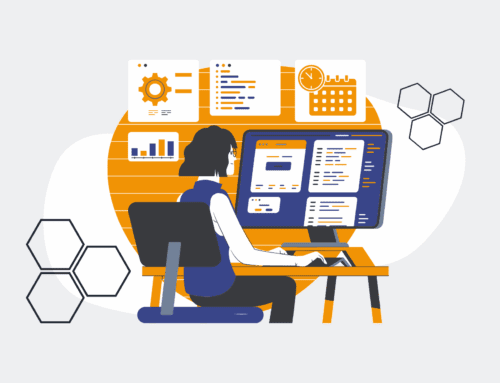The Human Touch in Automated HR: Balancing Efficiency and Empathy
In the relentless pursuit of efficiency, modern HR departments are increasingly turning to automation and artificial intelligence. While the promise of streamlined operations, reduced manual errors, and faster talent acquisition is undeniably compelling, a critical question arises: In a world of algorithms and automated workflows, what happens to the human touch? At 4Spot Consulting, we believe that the most effective HR strategies don’t just automate tasks; they strategically integrate technology to amplify empathy, cultivate stronger relationships, and empower HR professionals to focus on what truly matters: people.
The notion that automation inherently diminishes human interaction is a common misconception. In reality, when applied thoughtfully, HR automation can liberate professionals from the drudgery of administrative tasks, allowing them to dedicate more time and cognitive energy to nuanced human challenges. Imagine an HR team freed from manual resume parsing, scheduling interviews, or onboarding paperwork. This isn’t about replacing people; it’s about reallocating human capital to high-value activities that demand emotional intelligence, strategic foresight, and personal connection.
The Modern HR Predicament: Overwhelmed by Admin, Underserved in Connection
Today’s HR landscape is often a paradox. Teams are stretched thin, grappling with an ever-growing mountain of administrative responsibilities, from compliance and payroll to benefits administration and performance management. This operational burden frequently leaves little room for proactive employee engagement, meaningful conflict resolution, or strategic talent development. The result? HR professionals become reactive administrators rather than strategic partners, leading to burnout, missed opportunities for connection, and a perception within the organization that HR is merely a transactional department.
Moreover, the quest for top talent is more competitive than ever. A clunky, impersonal application process or a slow, disjointed onboarding experience can deter even the most promising candidates. In a world where employee experience is paramount, the initial interactions with HR set the tone for an individual’s entire journey with a company. A system that feels cold, inefficient, or robotic can inadvertently communicate a lack of care, even if the intention is simply to process information quickly.
Reclaiming Empathy Through Intelligent Automation
The true power of automation in HR isn’t in eliminating human involvement, but in making that involvement more impactful. Consider the recruitment journey. Automated applicant tracking systems (ATS) can filter unqualified candidates, but a human still needs to review the qualified ones, conduct empathetic interviews, and make the final, nuanced decision. AI-powered chatbots can answer FAQs 24/7, providing instant support, but they can’t replace the sensitivity required to navigate a complex employee relations issue or offer personalized career guidance.
At 4Spot Consulting, our OpsMesh framework helps organizations architect an integrated automation strategy that enhances, rather than erodes, the human touch. Through an OpsMap™ diagnostic, we identify exactly where manual tasks are draining resources and where automation can create space for more meaningful human interaction. For example, by automating the collection of routine employee feedback, HR can then spend valuable face-to-face time discussing complex feedback, offering support, and coaching managers. This shifts HR’s role from data entry to strategic counsel.
Strategic Implementation: Blending Efficiency with Personalization
Implementing automation successfully requires a strategic approach that prioritizes both efficiency and the preservation of personalized experience. It’s about discerning which tasks are best handled by machines and which absolutely require human insight and emotional intelligence. For instance, using Make.com to connect disparate systems like an applicant tracking system, HRIS, and communication platforms can automate data entry and information flow, ensuring that all relevant employee data is consistently updated and accessible. This not only eliminates human error but also ensures that HR professionals have a comprehensive view of an employee without spending hours compiling data manually.
This efficiency then opens doors for enhanced personalization. Imagine new hires receiving custom-tailored onboarding schedules and resources, automatically delivered at the right time, rather than a generic, one-size-fits-all email. Or employees receiving proactive alerts about benefits milestones, freeing up HR to engage in deeper conversations about career paths and well-being. This is where 4Spot Consulting’s OpsBuild phase comes in: designing and implementing these sophisticated workflows that leverage tools like Make, Workfront, and Boost.space to create a seamless, yet deeply human, HR experience.
The goal is to create an HR ecosystem where technology handles the transactional, repetitive work, allowing HR professionals to focus on the transformational. This means more time for coaching, mentorship, strategic planning, and building a truly engaged workforce. It’s about leveraging the power of AI to provide insights and automate processes, while keeping the human element at the core of every interaction. Ultimately, the human touch in automated HR isn’t a casualty of progress; it’s the very outcome we strive to enhance, empowering organizations to build more empathetic, efficient, and ultimately, more successful teams.
If you would like to read more, we recommend this article: The HR & Recruiting Automation Engine: Architecting Excellence with Make, Workfront, Boost.space, and Vincere.io








